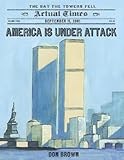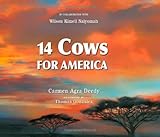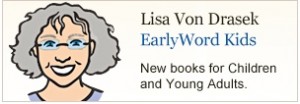Talking to Kids about 9/11
With the tenth anniversary of the 9/11 pervading the news, librarians who work with children, are faced with special challenges in helping them understand the tragedy.
My school, the Bank Street College School for Children, has provided some guidelines for teachers that may be adapted for the rest of us who work with children, especially young children.
- We can focus on the good rather than the horrific; the bravery of individuals, the people who were heroic, the focus going forward on security and public safety.
- We can assure children that we are together in a safe place and a caring community, in which adults take good care of children
Language for our teachers and families has been adapted from the NYU Child Study Center. What we discuss with children may include:
- It was a terrible thing that happened on September 11, ten years ago
- Before you were born, a small group of people who did not like our country did a very bad thing. They hijacked four airplanes, which means that they forced the pilots to let them fly the planes. Instead of landing the planes, they made them crash into the Twin Towers in New York, a building called the Pentagon in Washington, D.C., and a field in Pennsylvania. None of this usually happens when people travel on airplanes.
- Lots of people escaped the Twin Towers and the Pentagon and were helped by many rescuers. Sadly, some people did not escape and died that day.
- Adults and older children who were living when it happened might feel sad when they remember that day.
- It is okay to feel sad and to talk about and ask questions about what happened.
- Since then, many people in the United States and around the world have been working hard to keep everyone safe and to make airports, airplanes, and buildings safer.
- Many people have been working together to make the world better and to take care of other people. These are good things.
Tips for Parents and Caregivers
Please do not interpret these talking points to mean that everyone must sit down with a child and tell him/her about 9/11. Each family decides how and what to share with their child about this or any subject. Instead, here are some general thoughts in preparation for the anniversary:
- Be prepared to be present for your children more than usual. More than words, your presence is the most reassuring thing they can have.
- Tune in to coverage of the anniversary only when you know your child is asleep or not home. Even if it looks like they’re busy playing in another room, they hear everything! Keep newspapers and other sources of images out of view.
- Listen to your child. Answer the questions they ask, trying not to give them more information than they need.
- Turn their questions back to them. You can find out more about what they’re thinking. (It also buys you time to think!)
- Say you don’t know, if you don’t. You can think about it together.
- Say you’d like to talk about it with them, but you need time to think first. Set a time to talk—make sure you return to it. In between, seek out resources if you feel nervous or worried about what to say.
- Telling your own story as one way to address your child’s questions and curiosity: Where were you and what were you doing on Sept 11, 2001? How did you find out what happened? What did you think, feel, and do? How do you think and feel about the anniversary? Without graphic or inappropriate information, your personal story can be more meaningful than the overwhelming big ideas and horrific facts. Additionally, since it’s your story, it can be easier for you to answer questions your child might have.
- Avoid speaking over children’s heads to other adults assuming that the child won’t understand or isn’t listening to grownup conversations.
Other Resources
For Parents and Teachers
At the Bank Street Library website, you will find a useful link to Teaching through a Crisis: September 11 and Beyond. Published in 2003, this collection of essays was fueled by a desire to provide a vehicle through which educators could share their experiences of those events. Contributors wanted to know how teachers were addressing the questions raised by the tragedy: What kinds of conversations had been sparked among children, teachers and parents?
For Older children ages 8 and up
 |
|
A dispassionate accounting of that day illustrated and age appropriate giving an easy to understand timeline of the events, includes an author’s note, sources and brief bibliography. America is Under Attack teachers’ guide written by Emily Linsay, a Bank Street School for Children teacher can be downloaded here.
 |
|
Storyteller Deedy collaborated with Kenyan, Kimeli Naiyomah who tells of returning home to his Maasai village after 9/11 and related the events that he had witnessed to his community. The elders decided that to ease the sorrow of the citizens of New York, they would provide fourteen cows to comfort them in their loss. The herd exists to this day. Gonzalez’s vibrant paintings draw the audience into this picture book bringing the reader into a very different community than their own.

